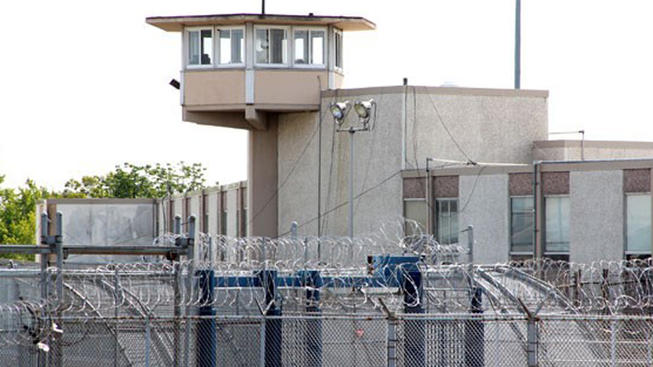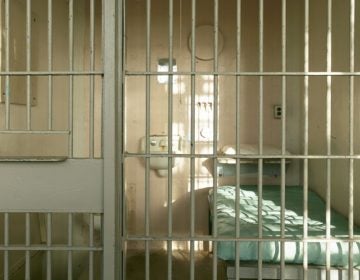Three years after ACLU settlement, prisoners with mental illnesses still face long waits for state hospitals
There are 140 people on those wait lists to get into state facilities, Department of Human Services said in an email.

The correctional complex on State Road in Philadelphia. (Emma Lee/WHYY)
Three years since the state Department of Human Services first settled a lawsuit with the American Civil Liberties Union, the ACLU of Pennsylvania says the situation is improving, but the state still hasn’t met the terms of the settlement.
That situation leaves people who have been deemed unfit to stand trial for alleged crimes locked up in county prisons for weeks or months while waiting for spots to open at state mental hospitals. Those people face charges for alleged crimes ranging from homicide to shoplifting. The state is required to help them become fit to stand trial.
“These people are so sick that they do not understand their criminal charges and cannot help in their defense, which means that under the Constitution they cannot be prosecuted until and unless they become competent,” ACLU said about the lawsuit in a 2017 press release.
Wait times to get into state facilities have improved in the past year, said ACLU of Pennsylvania legal director Vic Walczak. However, they’re still too long. The settlement requires that each person is placed in a state facility within seven days.
“So the wait times in the past year at Norristown have gone from 14 months or longer to six months, which is still unconstitutional, but it’s a whole lot better than it was,” Walczak said.
Those in line for a bed at Torrance state hospital faced shorter wait times in 2018, with some people waiting fewer than 30 days, Walczak said.
There are 140 people on those wait lists to get into state facilities, Department of Human Services said in an email. The average wait time among that group is 73.88 days or 11.55 days for those waiting to get into Torrance and 79.5 days for those on the list for Norristown.
For those with serious mental illnesses, everyday matters, Walczak said. He described the prisoners as “the sickest of the sick,” people who may be suffering from schizophrenia or bipolar disorder.
In some cases, once a person is put in county jail, they stop receiving medications and treatment for mental disorders, he said.
“And if you stick them in a prison cell, especially without treatment, there is a serious risk they’re going to get worse, and at some point, they make never get back to where they were,” he said.
The current agreement actually is based on a second settlement between ACLU and DHS, records show. The first settlement occurred in January 2016. The ACLU filed a motion in May 2017, saying wait times had actually gotten worse. The second settlement happened in June 2017 and included requirements that DHS add beds at Norristown and Torrance and hire a consulting group to develop a plan to reduce wait times.
Department of Human Services said it continues to work closely with ACLU and has already made about 300 new beds available to this group of people through the state hospital system.
WHYY is your source for fact-based, in-depth journalism and information. As a nonprofit organization, we rely on financial support from readers like you. Please give today.





